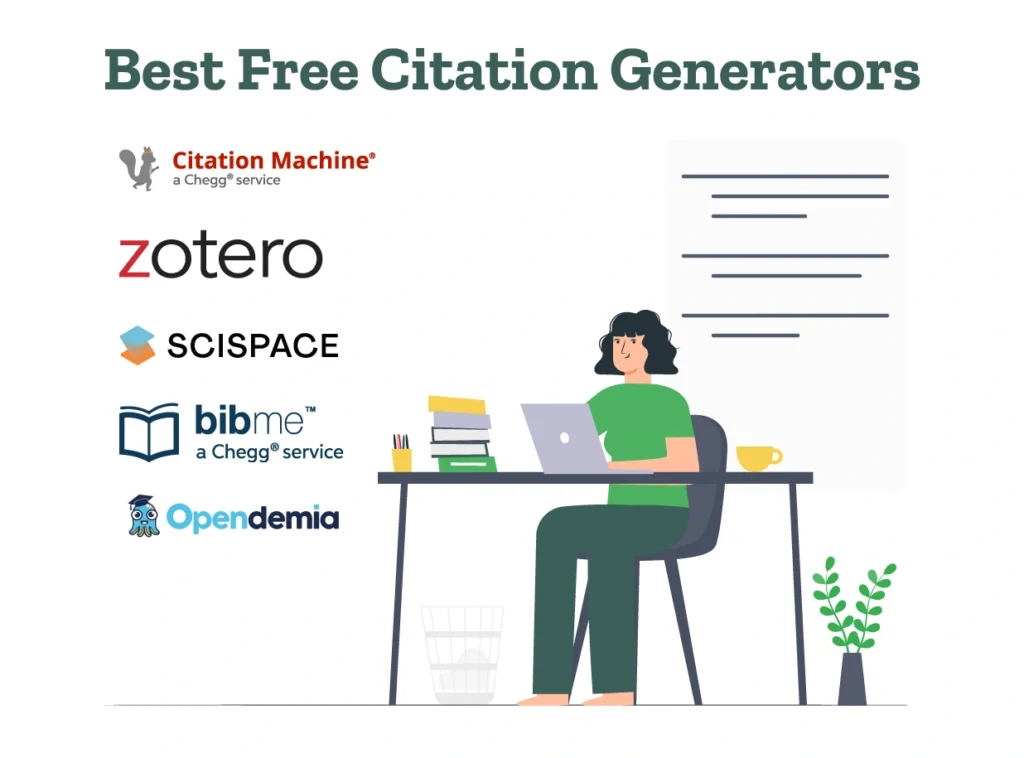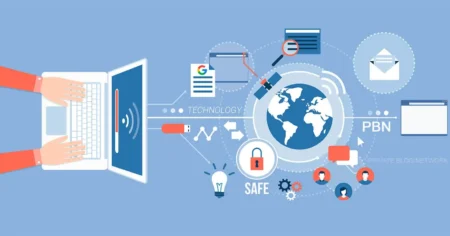A citation generator is a tool designed to automatically create citations for research papers, articles, and various written works that require referencing. Citations are an essential part of academic and professional writing because they give credit to original authors and sources. Proper citation practices are crucial in avoiding plagiarism, maintaining academic integrity, and supporting the credibility of your own work. Citation generators streamline the citation process, ensuring that all sources are properly credited in the required format without much hassle.
In this in-depth exploration, we will look at how citation generators function, their importance in academia, the different citation styles they support, and how to use these tools effectively for various purposes.
Introduction to Citation Generators
A citation generator is an online or software-based tool that assists users in creating accurate references. These tools allow users to input source details such as the author’s name, publication title, and date, and then automatically format the information into the correct citation style, whether it’s APA, MLA, Chicago, or others. By doing so, they eliminate the manual labor and confusion that often accompanies creating citations, especially for individuals unfamiliar with specific formatting rules. Whether for students, professional researchers, or even casual writers, citation generators provide a quick and easy solution to a traditionally time-consuming task.

Importance of Citations in Academic and Professional Writing
Citations are more than just a requirement; they serve as a foundation of ethical and credible writing. When you cite a source, you acknowledge the work of other authors and show that your arguments are based on established knowledge. This process not only strengthens your work but also allows readers to trace back the original sources for verification or further reading.
In academic settings, failing to cite properly can result in accusations of plagiarism, a serious offense that can have consequences such as reduced grades, academic penalties, or even legal repercussions. In professional settings, incorrect citations or lack thereof can damage your credibility and reputation. Citation generators, by ensuring accuracy and adherence to style guides, play a pivotal role in maintaining the integrity of scholarly communication.
How Citation Generators Work
Citation generators are designed to be user-friendly and intuitive. Most generators follow a simple process where users input specific information about a source, such as:
- Author’s name
- Title of the book, article, or webpage
- Publisher name and publication date
- URL or DOI (for digital sources)
Once the relevant details are input, the generator automatically formats the citation based on the selected style. Many modern generators support a wide range of citation styles, and some even offer options for citing less common sources, such as podcasts, emails, or social media posts.
Additionally, some advanced citation generators allow users to store, manage, and organize their references in personal databases, making it easier to retrieve and format citations for different projects.
Common Citation Styles Supported by Citation Generators
One of the main advantages of using a citation generator is that it can support a variety of citation styles, each suited to different disciplines or types of publications. The most commonly used citation styles include:
- APA (American Psychological Association): Primarily used in social sciences, education, and psychology. APA style emphasizes the author-date format for in-text citations and a detailed reference list at the end.
- MLA (Modern Language Association): Commonly used in the humanities, especially in literature and language studies. MLA uses parenthetical citations and works cited pages that focus on the author’s name and page number.
- Chicago/Turabian: Often used in history, business, and the arts. The Chicago style has two variations: notes and bibliography (used for more detailed citations with footnotes) and author-date (similar to APA).
- Harvard: Widely used in many disciplines, especially in the UK. Harvard citation uses an author-date system similar to APA, but with subtle differences in formatting.
These styles have strict guidelines for how information should be presented, making it essential to use citation generators to ensure compliance with their unique requirements.
Benefits of Using Citation Generators

Citation generators offer several benefits, which make them indispensable tools for writers and researchers:
1. Time Efficiency
Manually creating citations can be tedious, especially when working with a large number of sources. A citation generator significantly speeds up this process by automating the formatting, allowing you to focus more on the content of your work rather than its references.
2. Accuracy
One of the biggest challenges when creating citations is ensuring consistency and accuracy, especially if you’re working with multiple citation styles. Citation generators minimize errors by automatically applying the correct formatting rules for each style.
3. Reduction of Plagiarism
Citations are vital in avoiding plagiarism, whether intentional or unintentional. By ensuring that all sources are properly cited, citation generators help prevent accusations of plagiarism, which can have serious academic or professional consequences.
4. User-Friendly Interface
Most citation generators are designed with simplicity in mind. Their user-friendly interfaces make it easy for even the most inexperienced user to generate accurate citations in seconds.
5. Access to Multiple Sources
Some citation generators allow you to input various types of sources beyond just books or journal articles. These include online content, podcasts, social media, and government publications, which can be more difficult to cite manually.
Limitations of Citation Generators
Despite their many benefits, citation generators also have some limitations:
1. Over-Reliance on Technology
It’s easy to become overly dependent on citation generators. While they’re great tools, users should still have a basic understanding of citation rules in case they need to adjust or correct generated citations manually.
2. Potential for Incomplete Data
Some citation generators rely on minimal data input from users or databases. This can sometimes result in incomplete or incorrect citations, particularly for more obscure sources that the tool may not recognize.
3. Updates to Citation Styles
Citation styles are periodically updated, and not all citation generators are immediately updated to reflect these changes. This can lead to outdated citations if users aren’t careful.
Types of Citation Generators
There are various citation generators available, ranging from free tools to premium services that offer additional features. Some of the most popular citation generators include:
EasyBib
One of the most popular online citation tools, EasyBib supports several citation styles and allows users to create citations for books, journal articles, websites, and more. EasyBib also offers grammar checks and writing guides.
Cite This For Me
Cite This For Me is another free tool that supports a variety of citation styles. Its user-friendly design and ability to quickly generate citations for a wide range of source types make it a favorite among students.
Zotero
Zotero is both a citation generator and a reference management tool. It allows users to organize their citations into projects, annotate sources, and store references for later use.
BibMe
BibMe offers automatic citation generation in MLA, APA, Chicago, and other styles. It’s particularly useful for students who need to cite websites, as it can automatically extract relevant information from URLs.
Best Practices for Using Citation Generators
To get the most out of a citation generator, it’s important to follow best practices:
- Double-Check Your Sources: Always verify that the information you input into the generator is accurate and complete.
- Review Generated Citations: Even the best citation generators can make mistakes. Review each citation to ensure it meets the style guidelines, and make manual adjustments if necessary.
- Stay Updated on Citation Styles: Be aware of any updates to the citation styles you are using, and ensure that your generator reflects the most recent guidelines.
- Use Advanced Features: Many citation generators offer features such as saving and organizing references. Utilize these tools to keep track of your sources throughout your research.
The Future of Citation Generators
As technology continues to advance, citation generators will likely become even more integrated into academic writing tools. Features such as AI-based writing assistance, automated bibliography management, and real-time citation updates could further streamline the citation process. Additionally, with the rise of digital content, citation generator’s will need to evolve to handle new source types, such as social media platforms or digital archives.
Conclusion
Citation generators have revolutionized the way we approach academic and professional writing by providing an efficient and accurate solution for creating citations. While they come with limitations, their benefits in saving time, ensuring accuracy, and reducing plagiarism make them indispensable tools for students, researchers, and writers alike. By understanding how to use these tools effectively, you can enhance the quality of your writing while adhering to proper citation standards.
Read More: iPhone 16 vs iPhone 15: Which One Should You Buy?









